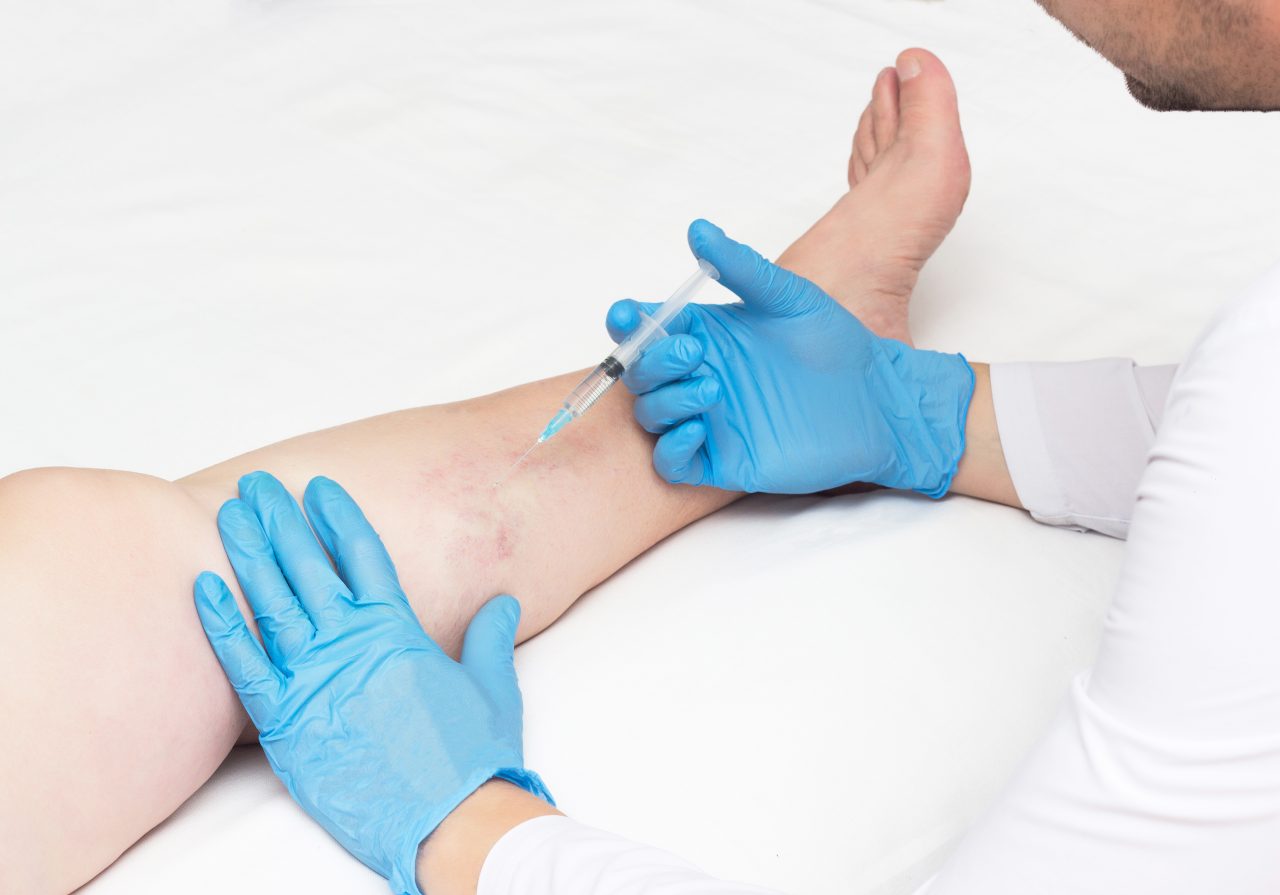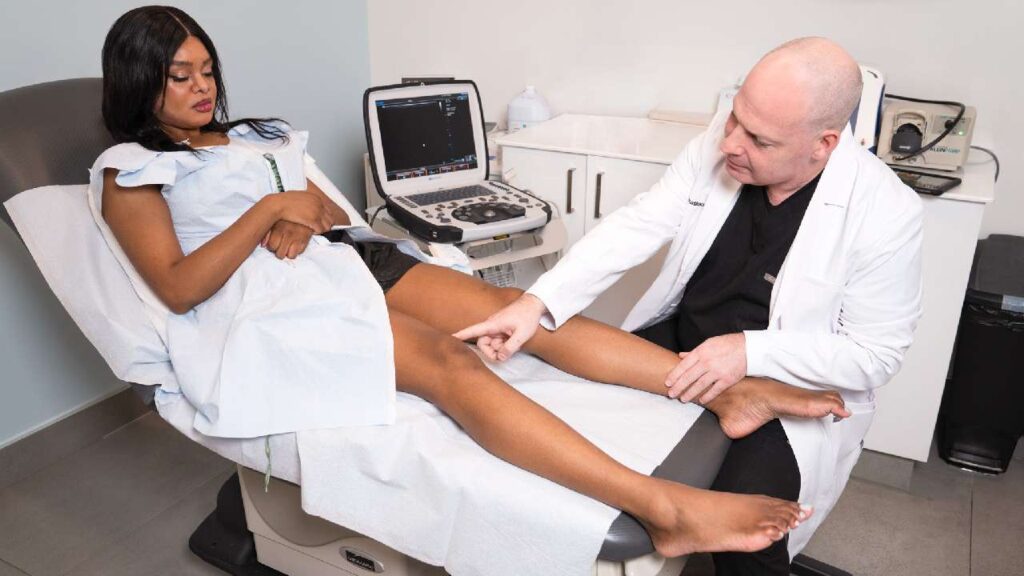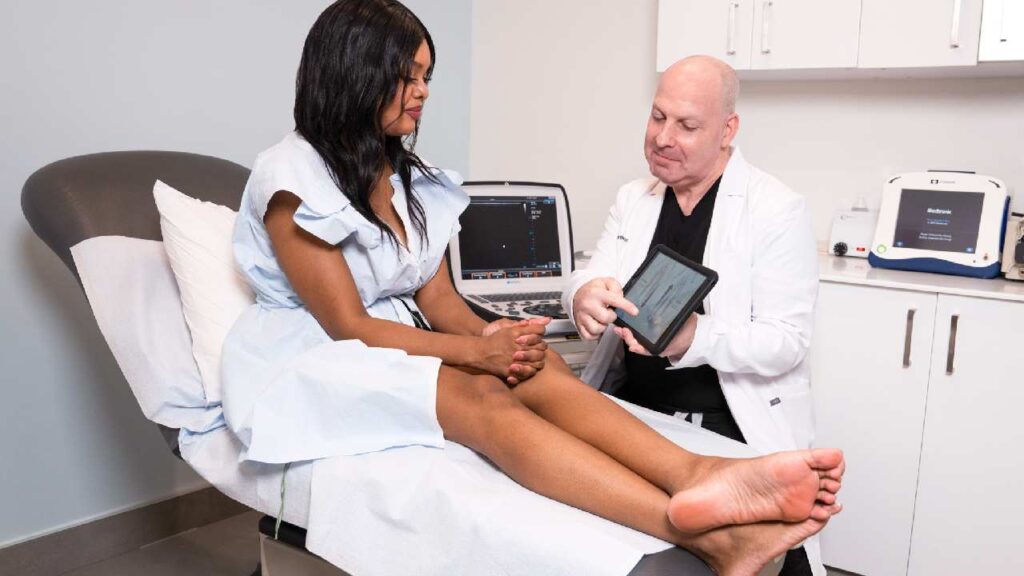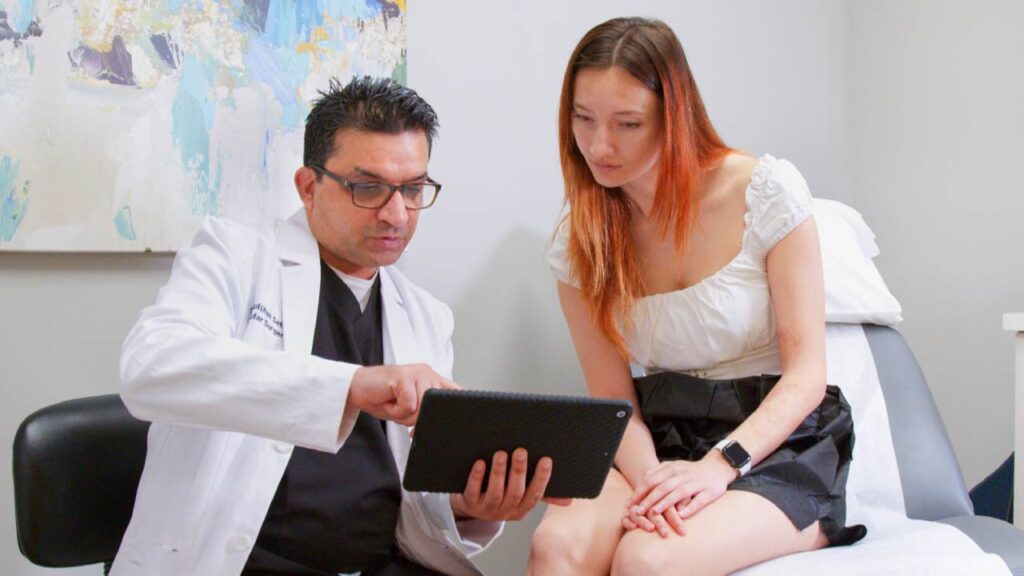How to Treat Early Varicose Veins at Home: Is It Effective?
Have you noticed veins beginning to bulge and swell beneath your skin? Are they larger and more twisted than other veins? Do you have any tell-tale symptoms like itching, pinching, cramping, or heaviness in your legs? You are likely one of the millions with early-stage varicose veins. When varicose veins are new, there are some home treatments you can try to reduce the symptoms, like wearing compression stockings, elevating your legs, or changing positions when you sit or stand for long periods.
It’s also advantageous to exercise regularly and maintain a healthy weight. However, these tactics are just for symptom management. Only a vein doctor can properly treat or remove a varicose vein and prevent additional ones from developing. In addition, untreated varicose veins can produce debilitating or even life-threatening complications, so don’t take matters into your own hands. Click HERE for minimally invasive treatment for varicose veins in NY in under 30 minutes!

Homeopathy for Varicose Veins in Legs: Is It Safe?
Homeopathy is not regulated by the FDA and is not held to any legal standards regarding quality, dosage, sourcing, added ingredients, or purity. It’s risky to try homeopathy for any condition, but certainly those that involve your vascular system. Studies show that there is little evidence for the efficacy of homeopathy, and it can produce dangerous outcomes.
In addition, trying homeopathy often delays the medical care patients need. Instead of trying homeopathy for varicose veins in the legs, talk to our Harvard-trained vein doctors about minimally invasive ways to reduce symptoms and improve circulation. Our NY vein specialists avoid surgery whenever possible, and they’re trained educators who promote an interventional approach to vein care.
Should I Get My Varicose Veins Treated by a Doctor Instead?
The first step in varicose veins treatment should be a consultation with a board certified vein doctor in NY. Our vein experts will analyze your venous pathways to identify the cause of your varicose veins, whether that’s valve failure, Chronic Venous Insufficiency (CVI), blood clots, or other issues. Finding the cause is essential to effective treatment, since issues like CVI can’t be fully resolved with home treatments like compression stockings.
Our vein doctors will let you know if it’s safe to proceed with home treatments for symptoms, or whether your veins require treatment. All of our procedures are minimally invasive, which means they’re faster, gentler, safer, and easier than vein surgery. Many of our patients visit us during a lunch break or between errands, and head right back to their routine. Seeing a doctor is much quicker and far more effective than trying to combat symptoms at home. Our procedures are frequently covered by insurance, making relief simple and affordable.
What Happens If Varicose Veins Are Left Untreated?
The question of what happens if varicose veins are left untreated does not have a singular answer. Some patients’ veins will remain asymptomatic and no complications will occur. But many patients will experience frustrating symptoms like heaviness, swelling, cramping, itching, restlessness, and fatigue in their legs. Others will develop additional complications like venous ulcerations that are slow to heal and prone to infection, or rashes like venous stasis dermatitis.
Some patients will contend with discoloration on their lower legs or bleeding that’s hard to control when the skin is injured. Life-threatening complications include a blood clot or deep vein thrombosis (DVT) that breaks loose and travels to the lungs, causing a pulmonary embolism. It’s impossible for patients to predict what will happen if they ignore their varicose veins. But with the help of Duplex Ultrasound and diagnostic tools, our vein doctors can map out your venous pathways and ward off these avoidable complications.
Does High Blood Pressure Cause Varicose Veins or CVI?
High blood pressure typically refers to an elevation of pressure in the arteries, not the veins. This is what doctors call “hypertension,” and its causes include aging, weight gain, obesity, smoking, and disease. When you have high blood pressure in the arteries, it means the arteries have narrowed, complicating the efforts of the heart to pump blood throughout your body.
High blood pressure in the veins is a different but related condition to high blood pressure in the arteries. Unlike arteries, veins are lined with valves that close to ensure blood returns to the heart, rather than flowing backward. When these valves fail, blood flows in reverse, creating excess endovenous pressure.
That pressure engorges the vein, which is the impetus for varicose veins and spider veins to form. When this issue persists, it’s what’s known as Chronic Venous Insufficiency (CVI). This common condition can be quite debilitating, but the good news is, it’s easily treated in roughly 30 minutes by our minimally invasive vein doctors in NY.
Do Varicose Veins Cause High Blood Pressure or DVT?
High blood pressure in veins, not arteries, causes varicose veins. However, these blood vessels work together to facilitate circulation. Arteries pump blood from the heart and veins return blood to the heart. So, some patients develop both conditions. You might be wondering if the problem works in reverse: do varicose veins cause high blood pressure or other issues like a DVT?
Varicose veins don’t directly cause high blood pressure in the arteries (hypertension). That’s linked to other causes. But since veins and arteries work together to transport blood, treating one condition benefits the other. Eating healthily, reducing sodium intake, exercising, avoiding sitting or standing too long, and quitting smoking help reduce the burden on both veins and arteries and prevent blood clots and DVT. Ask our doctors about gentle treatments and preventative steps to optimize circulation in both types of blood vessels.
Are Superficial Varicose Veins and Chest Veins Easy to Treat?
Varicose veins were routinely treated with vein stripping surgery 30 years ago. So, if your parents underwent varicose veins treatment, it was likely surgical. However, advancements in venous medicine have outpaced nearly every medical field in recent decades. Except in rare cases, vein doctors now treat veins through the skin with tiny instruments that prompt the vein to close and disappear, rather than surgically extracting them.
These procedures take 15-30 minutes and don’t require hospitalization, recovery time, or general anesthesia. So, are superficial varicose veins in the legs, arms, and chest easy to treat? Yes, provided you choose a vein doctor who is trained in the latest methods, rather than outdated surgeries.
What’s the Best Clinic for Varicose Veins in New York?
Trying homeopathy for varicose veins is often ineffective or detrimental. If you delay diagnosis and treatment by trying to do it yourself, you risk unnecessary complications. Visit our premier clinic for varicose veins in Midtown or FiDi for cutting-edge treatment. We’ll determine whether your veins require treatment, or whether they’re safe to monitor. Our Ivy-League physicians are trained in innovative varicose veins treatments and use state-of-the-art technology for exceptional care.
What’s the Best Vein Center in NY for Other Vascular Needs?
If you have varicose veins, there’s a good chance you also have spider veins or Chronic Venous Insufficiency, since CVI causes both types of vein damage. Choose a NY vein clinic that’s equipped to handle all your vascular needs. Dermatological and cosmetic vein clinics can only treat small, superficial veins, not the source of the problem in deeper veins. Our renowned NY vein specialists use sclerotherapy, radiofrequency ablation, endovenous laser treatment, vein adhesives, and mechanochemical ablation to obliterate the veins you see at the surface, as well as the cause. Contact us today!





